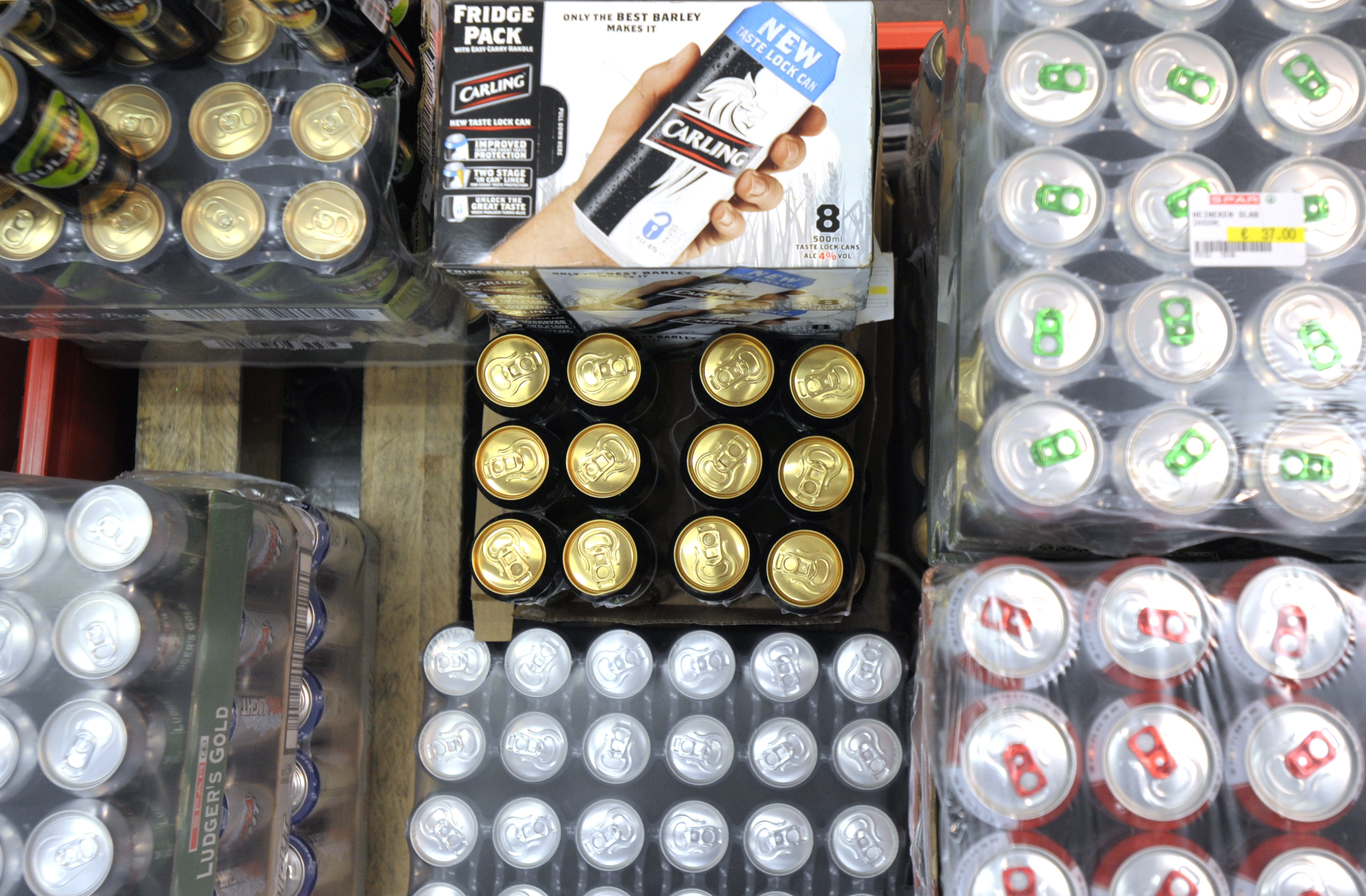A hard Brexit and tougher alcohol rules will create the 'perfect storm' for the drinks sector
Thousands of jobs are at risk in the industry over the coming years.
THE IMPACT OF Brexit on the Irish regional and rural economy presents a very real and present danger.
The reality is the combination of a hard Brexit and the Public Health Alcohol Bill will create the perfect storm for the drinks sector, which is the powerhouse of the Irish agri-food and drinks industry.
The Irish drinks industry exports €1.4 billion to 139 markets as well as supporting over 200,000 jobs in the wider drinks and hospitality sectors. With an annual wage bill of over €4 billion, it is a hugely important part of the Irish food and drinks sector.
Yet figures published in the recent Bord Bia ‘Export Performance and Prospects’ report show that the value of Irish food and drink exports to the UK fell by €570 million in 2016 due to sterling’s decreased value against the euro since the Brexit vote. That is a staggering €1.2 billion on an annual basis.
Recently, UK prime minister Theresa May outlined her plans for a hard Brexit, which means Irish businesses will not only have to cope with currency challenges but Ireland’s closest trading partner will no longer be part of the single market and the customs union.
Between Ireland and the UK, the combined value of inward and outward trade in agri-food and drink, cross-border shopping and tourism is almost €12 billion. Furthermore, the UK is Ireland’s biggest export market for food and drink, taking €4.5 billion worth of exports from Ireland.
A common border means that currency and or alcohol taxation shifts can lead to a major loss of revenue from cross-border shopping and can severely impact border economies.
A study by the drinks industry group DIGI earlier this year found that 16,000 people are employed in the drinks and hospitality sector in the border regions, ranging from more than 7,500 people in Donegal to just over 3,300 in Louth.
Given that Ireland cannot unilaterally devalue the euro, for Irish companies and regions to continue trading with the UK the Irish cost base must be competitive.
Most expensive
Yet Irish alcohol is currently the most expensive in the EU, and the fall in the value of sterling by over 25% means that alcohol products for sale in the North are now up to 40% cheaper than in the south. Furthermore, Ireland is now 25% more expensive for tourists visiting from the UK.
Policymakers clearly need a concerted, national effort to demonstrate to our EU partners that a hard Brexit could have a uniquely damaging impact on the Irish regional economy and that EU support for a smooth transition is required.
However, the case for EU support will surely be undermined if the Irish government, through high taxes – such as excise rates – and alcohol price increases, continue to promote policies that drive consumers across the border or price Ireland out of the tourism market.
The government now has an opportunity to make a series of important policy decisions to mitigate against the risks of Brexit and reduce the unintended consequences of some of the policy measures contained in the alcohol bill.
Measures contained in the bill including structural separation, advertising restrictions and health labels will further increase the cost of doing business on a sector already under pressure. They will effectively act as major barriers to startups with impacts on the nascent craft brewing and distilling sectors as well as existing players.
That is why the government should adopt the standard EU label for alcohol, when this is agreed, rather than imposing a costly ‘Ireland-only’ label as proposed in the bill.
On advertising, the government should put the existing codes of practice, which are amongst the strictest in the world, regarding volume, placement and content on a statutory footing.
State-aid challenge
Now the UK has confirmed its intention to leave the single market, the government must challenge EU state-aid rules and make the case that such constraints are no longer relevant to those trading predominantly with the UK.
The government should also introduce a ban on below-cost selling rather than bringing in minimum unit pricing as proposed in the bill.
The reality of the cross-border dimension was emphasised by the then minister for health, Leo Varadkar, in December 2015, when he declared that it was the government’s intention to “go ahead with minimum pricing at the same time as Northern Ireland” as ”it would be totally counterproductive if people just went North of the Border”.
Current all-island geographic indicators in place for Irish whiskey, Irish cream and Irish poitín must also be protected to guarantee the integrity and future success of the categories.
Lastly, access to new markets will be crucial in replacing any lost sales that may arise if trading with the UK market becomes difficult. Irish whiskey is sold in over 100 markets, however our competitors in Scotland have access to over 170 markets.
The government needs to step up and assist exporting companies to gain access to new markets to diversify their businesses.
Ciarán Fitzgerald is an agri-food economist and former director at Ibec. He is an adviser to the Alcohol Beverage Federation of Ireland and several other organisations in the food and drink sector.
If you want to share your opinion, advice or story, email opinion@fora.ie.






